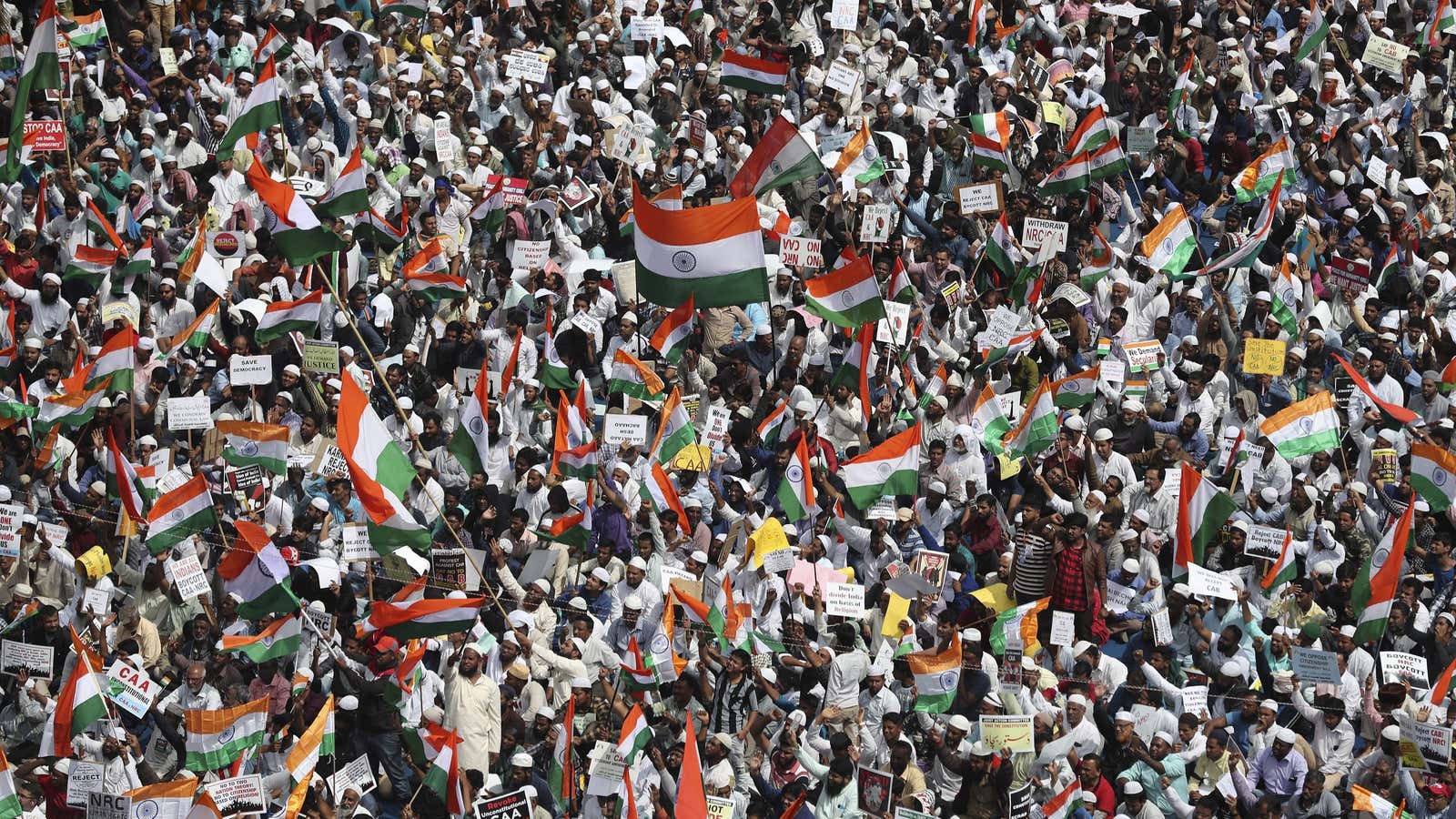Shutting off the internet, it appears, is the newest and most popular means of repression.
Residents in India’s Jammu and Kashmir regions, for example, have been without internet access for more than four months. That’s because the Indian government is trying to prevent unrest in the region after it revoked their special status in August, curbing the autonomy the disputed territories have long held dear.
The Indian government has also recently shut down the internet in other parts of the country where large protests have erupted against a controversial new citizenship law. Altogether, the internet blackouts in India have restricted access to the web for tens of millions of people.
Denying internet service has now become a de facto means of suppression by governments around the world. This year alone, at least 29 nations—including Venezuela, Iran, Turkey, Iraq, Kazakhstan, and Indonesia—have shut down the web to prevent the spread of information those governments deem dangerous. According to data from Access Now—a digital rights policy non-profit—as of July the world was on pace to exceed the number of annual government-ordered web shutdowns than ever before, and that was before the events in India and elsewhere.
Such shutdowns have become so commonplace, at this point they don’t even inspire condemnation from the international community, giving the suppressive actions its tacit approval.
So far this year in India alone, the government has interrupted service an estimated 93 times. That’s more times than the entire world three years ago, according to Access Now.
The authoritarian turn is the new go-to population silencer primarily because it’s so easy. The government only needs to ask, or demand, that internet service providers turn off outside connections. Unlike highly sophisticated censorship programs like those run in China, there are virtually no overhead costs when you shut down communications. In other words: Countries without censors may find it easier to unplug the web than, say, force a publication to stop publishing.
Internet shutdowns don’t only suppress information, they also suppress the economy. According to estimates from the Brooking’s Institution, internet shutdowns cost global economies some $2.4 billion in 2015. A Deloitte study found that each day the internet is blocked in a given country it costs $23.6 million per 10 million people impacted. That’s nearly $10 billion a week if the level of blackouts now enforced in India continues.
With global protests likely to continue in 2020—in places like Hong Kong, Iraq, Iran and India to name a few—the internet will likely also continue to be used as a political tool to stifle global news coverage and the spread of information. And without any political ramifications set forth by the international community, allies or trading partners, there’s nothing to stop internet blackouts from becoming suppressive government’s first response.
